- Home
- Packaging Products
- Sack Filling Machine Market Size, Future Growth and Forecast 2033
Sack Filling Machine Market Size, Future Growth and Forecast 2033
Sack Filling Machine Market Segments - by Type (Automatic, Semi-Automatic), Application (Food, Chemicals, Construction, Agriculture, Others), Technology (Gravity, Pneumatic, Vacuum, Others), and End-User (Industrial, Commercial, Others) - Market Dynamics, Growth Opportunities, Strategic Drivers, and PESTLE Outlook (2025–2033)
Sack Filling Machine Market Outlook
The Sack Filling Machine market was valued at $3.5 billion in 2024 and is projected to reach $5.8 billion by 2033, growing at a CAGR of 5.2% during the forecast period 2025-2033. This market is experiencing robust growth due to the increasing demand for efficient packaging solutions across various industries such as food, chemicals, and construction. The need for automation in packaging processes to enhance productivity and reduce labor costs is a significant driver. Additionally, the rise in e-commerce and the subsequent demand for Bulk Packaging Solutions are further propelling the market. Technological advancements in sack filling machines, such as the integration of IoT and AI for improved accuracy and efficiency, are also contributing to market expansion.
Report Scope
| Attributes | Details |
| Report Title | Sack Filling Machine Market Size, Future Growth and Forecast 2033 |
| Base Year | 2024 |
| Historic Data | 2017-2023 |
| Forecast Period | 2025-2033 |
| Number of Pages | 191 |
| Type | Automatic, Semi-Automatic |
| Application | Food, Chemicals, Construction, Agriculture, Others |
| Technology | Gravity, Pneumatic, Vacuum, Others |
| End-User | Industrial, Commercial, Others |
| Customization Available | Yes* |
Key Highlights Sack Filling Machine Market

- Increasing adoption of automated sack filling machines in the food and beverage industry.
- Rising demand for eco-friendly and sustainable packaging solutions.
- Technological advancements leading to the development of high-speed and precision machines.
- Growing e-commerce sector driving the need for efficient bulk packaging solutions.
- Expansion of the construction industry boosting demand for sack filling machines.
- Integration of IoT and AI technologies in sack filling machines for enhanced performance.
- Increasing focus on reducing packaging waste and improving recyclability.
- Strong growth potential in emerging markets due to industrialization and urbanization.
- Strategic partnerships and collaborations among key players to expand market presence.
- Regulatory support for sustainable packaging solutions driving market growth.
Competitive Intelligence
The Sack Filling Machine market is highly competitive, with key players such as Haver & Boecker, Barry-Wehmiller Companies, All-Fill Inc., Concetti S.p.A., Webster Griffin Ltd, Premier Tech Chronos, PAYPER S.A., Wuxi HY Machinery Co., Ltd., Imanpack Packaging & Eco Solutions S.p.A., and Statec Binder GmbH leading the charge. Haver & Boecker holds a significant market share due to its extensive product portfolio and strong global presence. Barry-Wehmiller Companies is known for its innovative solutions and customer-centric approach, which has helped it maintain a competitive edge. All-Fill Inc. focuses on precision and reliability, catering to a wide range of industries. Concetti S.p.A. is gaining ground with its advanced technology and customized solutions. Webster Griffin Ltd is expanding its geographic reach through strategic partnerships. Premier Tech Chronos is leveraging its strong R&D capabilities to introduce cutting-edge products. PAYPER S.A. is focusing on sustainability and eco-friendly solutions. Wuxi HY Machinery Co., Ltd. is strengthening its position in the Asia-Pacific region. Imanpack Packaging & Eco Solutions S.p.A. is known for its eco-friendly innovations. Statec Binder GmbH is enhancing its product offerings to cater to diverse customer needs.
Regional Market Intelligence of Sack Filling Machine
In North America, the Sack Filling Machine market is valued at $830 million and is expected to grow steadily due to the strong presence of the food and beverage industry and the increasing adoption of automation. Europe, with a market size of $720 million, is witnessing growth driven by stringent regulations on packaging waste and a focus on sustainable solutions. The Asia-Pacific region, valued at $940 million, is the fastest-growing market due to rapid industrialization, urbanization, and the expansion of the e-commerce sector. Latin America, with a market size of $410 million, is experiencing moderate growth, supported by the agricultural sector's demand for efficient packaging solutions. The Middle East & Africa, valued at $300 million, is seeing growth due to infrastructure development and the construction industry's expansion.
Top Countries Insights in Sack Filling Machine
The United States, with a market size of $650 million and a CAGR of 5%, is a leading market due to its advanced industrial sector and high demand for automation. China, valued at $580 million with a CAGR of 7%, is experiencing rapid growth driven by industrialization and the booming e-commerce sector. Germany, with a market size of $420 million and a CAGR of 4%, is focusing on Sustainable Packaging solutions and technological advancements. India, valued at $350 million with a CAGR of 8%, is witnessing growth due to urbanization and the expansion of the food processing industry. Brazil, with a market size of $280 million and a CAGR of 6%, is driven by the agricultural sector's demand for efficient packaging solutions.
Sack Filling Machine Market Segments Insights

Type Analysis
The Sack Filling Machine market is segmented into Automatic and Semi-Automatic machines. Automatic sack filling machines are gaining popularity due to their ability to enhance productivity and reduce labor costs. These machines are equipped with advanced features such as touch-screen interfaces, programmable logic controllers (PLCs), and IoT integration, which enable precise control and monitoring of the filling process. The demand for semi-automatic machines remains steady, particularly in small and medium-sized enterprises (SMEs) that require cost-effective solutions. The flexibility and ease of operation offered by semi-automatic machines make them a preferred choice for businesses with limited production volumes.
Automatic machines are witnessing higher adoption in industries such as food, chemicals, and construction, where high-speed and precision are critical. The integration of AI and machine learning technologies in automatic machines is further enhancing their capabilities, allowing for real-time adjustments and predictive maintenance. Semi-automatic machines, on the other hand, are favored in regions with lower labor costs, where manual intervention is still feasible. The growing trend towards automation and the need for efficient packaging solutions are expected to drive the demand for both automatic and semi-automatic machines in the coming years.
Application Analysis
The application segment of the Sack Filling Machine market includes Food, Chemicals, Construction, Agriculture, and Others. The food industry is a major contributor to market growth, driven by the increasing demand for packaged food products and the need for efficient bulk packaging solutions. Sack filling machines are widely used for packaging grains, flour, sugar, and other food products, ensuring product safety and extending shelf life. The chemicals industry is also a significant market, with sack filling machines used for packaging powders, granules, and other chemical products. The construction industry is witnessing growth due to the demand for packaging cement, sand, and other construction materials.
Agriculture is another key application area, with sack filling machines used for packaging seeds, fertilizers, and animal feed. The need for efficient and reliable packaging solutions in the agricultural sector is driving the demand for sack filling machines. The Others segment includes applications in industries such as pharmaceuticals, textiles, and mining, where sack filling machines are used for packaging various products. The diverse applications of sack filling machines across different industries are contributing to the overall market growth, with each segment presenting unique opportunities and challenges.
Technology Analysis
The technology segment of the Sack Filling Machine market includes Gravity, Pneumatic, Vacuum, and Others. Gravity-based sack filling machines are widely used due to their simplicity and cost-effectiveness. These machines rely on gravity to fill sacks with products, making them suitable for free-flowing materials such as grains and powders. Pneumatic sack filling machines use compressed air to fill sacks, offering higher speed and precision compared to gravity-based machines. These machines are ideal for packaging fine powders and granules, where accuracy is crucial.
Vacuum sack filling machines are gaining popularity due to their ability to handle delicate and lightweight products without causing damage. These machines use vacuum technology to fill sacks, ensuring minimal product loss and maintaining product integrity. The Others segment includes advanced technologies such as servo-driven and robotic sack filling machines, which offer high-speed and precision filling capabilities. The continuous advancements in technology are driving the demand for innovative sack filling machines, with each technology offering unique benefits and catering to specific industry needs.
End-User Analysis
The end-user segment of the Sack Filling Machine market includes Industrial, Commercial, and Others. The industrial sector is the largest end-user, driven by the demand for efficient packaging solutions in industries such as food, chemicals, and construction. Sack filling machines are essential for packaging bulk products, ensuring product safety and reducing waste. The commercial sector is also a significant market, with sack filling machines used in retail and distribution centers for packaging various products.
The Others segment includes applications in sectors such as agriculture, pharmaceuticals, and textiles, where sack filling machines are used for packaging different products. The growing demand for automation and the need for efficient packaging solutions in various industries are driving the demand for sack filling machines across different end-user segments. The increasing focus on sustainability and eco-friendly packaging solutions is also influencing the market, with end-users seeking machines that offer minimal environmental impact and improved recyclability.
The Sack Filling Machine market is characterized by a diverse range of players, each vying for a share of the growing market. Haver & Boecker and Barry-Wehmiller Companies are leading the market, leveraging their extensive product portfolios and strong global presence. All-Fill Inc. and Concetti S.p.A. are gaining market share through innovation and customer-centric solutions. Webster Griffin Ltd and Premier Tech Chronos are expanding their geographic reach through strategic partnerships and collaborations. PAYPER S.A. and Wuxi HY Machinery Co., Ltd. are focusing on sustainability and eco-friendly solutions to differentiate themselves in the market. Imanpack Packaging & Eco Solutions S.p.A. and Statec Binder GmbH are enhancing their product offerings to cater to diverse customer needs. The competitive landscape is dynamic, with companies continuously innovating and adapting to changing market demands. The market share distribution is influencing pricing strategies, with leading players able to command premium prices due to their advanced technology and superior product offerings. The focus on innovation and strategic partnerships is expected to drive market growth and shape the competitive landscape in the coming years.
Sack Filling Machine Market Segments
The Sack Filling Machine market has been segmented on the basis of
Type
- Automatic
- Semi-Automatic
Application
- Food
- Chemicals
- Construction
- Agriculture
- Others
Technology
- Gravity
- Pneumatic
- Vacuum
- Others
End-User
- Industrial
- Commercial
- Others
Primary Interview Insights
What are the key drivers for the Sack Filling Machine market?
How is technology impacting the Sack Filling Machine market?
What challenges does the Sack Filling Machine market face?
Which regions are experiencing the fastest growth in the Sack Filling Machine market?
What role does sustainability play in the Sack Filling Machine market?
Latest Reports

The fiber drums market was valued at $1.2 billion in 2024 and is projected to reach $2.1 billion by 2033, growing at a CAGR of 6.5% during the forecast period 2025–2033.

The cosmetics and perfumery glass bottles market was valued at $1.5 billion in 2024 and is projected to reach $2.3 billion by 2033, growing at a CAGR of 4.8% during the forecast period 2025–2033.

The medical devices packaging market was valued at $25 billion in 2024 and is projected to reach $40 billion by 2033, growing at a CAGR of 5.5% during the forecast period 2025–2033.
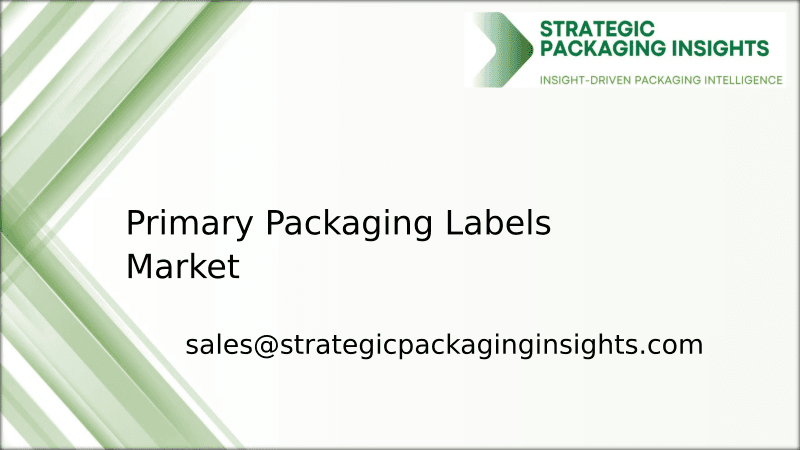
The primary packaging labels market was valued at $35 billion in 2024 and is projected to reach $55 billion by 2033, growing at a CAGR of 5.2% during the forecast period 2025–2033.

The corrugated board packaging market was valued at $250 billion in 2024 and is projected to reach $380 billion by 2033, growing at a CAGR of 4.5% during the forecast period 2025–2033.

The Water Soluble Packaging Films market was valued at $2.8 billion in 2024 and is projected to reach $5.6 billion by 2033, growing at a CAGR of 8.1% during the forecast period 2025–2033.

The Aluminium Foil Packaging market was valued at $25 billion in 2024 and is projected to reach $40 billion by 2033, growing at a CAGR of 5.5% during the forecast period 2025–2033.

The self-heating food packaging market was valued at $4.5 billion in 2024 and is projected to reach $7.8 billion by 2033, growing at a CAGR of 6.2% during the forecast period 2025–2033.

The Smart Container market was valued at $2.5 billion in 2024 and is projected to reach $8.7 billion by 2033, growing at a CAGR of 14.5% during the forecast period 2025–2033.

The Automatic Labeling Machine market was valued at $2.5 billion in 2024 and is projected to reach $4.8 billion by 2033, growing at a CAGR of 7.2% during the forecast period 2025–2033.

The Hot Melt Glue Labeler market was valued at $1.2 billion in 2024 and is projected to reach $2.3 billion by 2033, growing at a CAGR of 6.5% during the forecast period 2025–2033.

The Ethical Label market was valued at $1.5 billion in 2024 and is projected to reach $3.2 billion by 2033, growing at a CAGR of 8.5% during the forecast period 2025–2033.

The Packaging Tensioner market was valued at $1.2 billion in 2024 and is projected to reach $2.3 billion by 2033, growing at a CAGR of 6.5% during the forecast period 2025–2033.
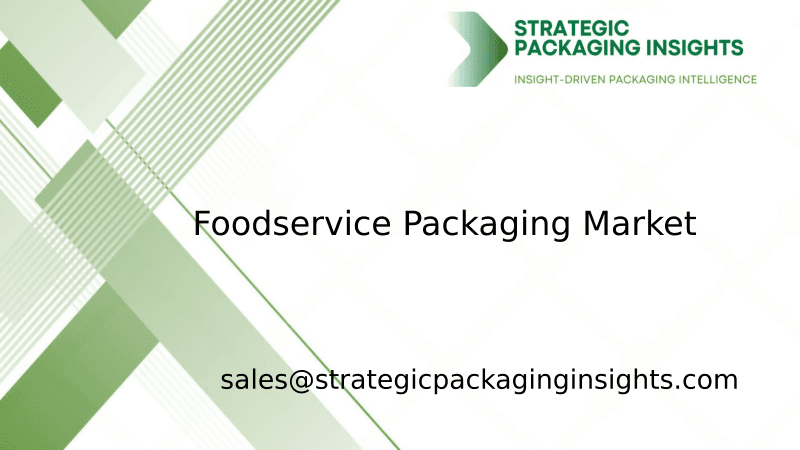
The foodservice packaging market was valued at $120 billion in 2024 and is projected to reach $180 billion by 2033, growing at a CAGR of 4.5% during the forecast period 2025–2033.

The nano-enabled packaging market was valued at $15.2 billion in 2024 and is projected to reach $35.6 billion by 2033, growing at a CAGR of 9.5% during the forecast period 2025–2033.
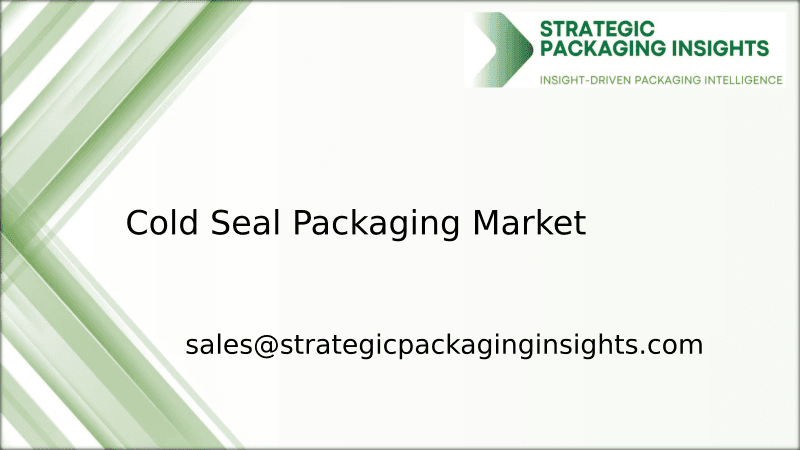
The Cold Seal Packaging market was valued at $1.5 billion in 2024 and is projected to reach $2.3 billion by 2033, growing at a CAGR of 4.8% during the forecast period 2025–2033.

The Transparent Barrier Packaging Films market was valued at $12.5 billion in 2024 and is projected to reach $20.3 billion by 2033, growing at a CAGR of 5.8% during the forecast period 2025–2033.

The Flatback Tape market was valued at $2.5 billion in 2024 and is projected to reach $4.1 billion by 2033, growing at a CAGR of 5.8% during the forecast period 2025–2033.
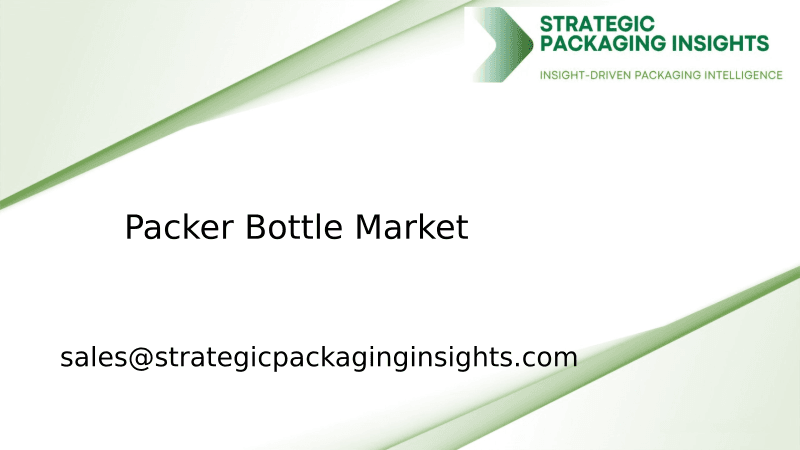
The packer bottle market was valued at $3.5 billion in 2024 and is projected to reach $5.8 billion by 2033, growing at a CAGR of 5.2% during the forecast period 2025–2033.
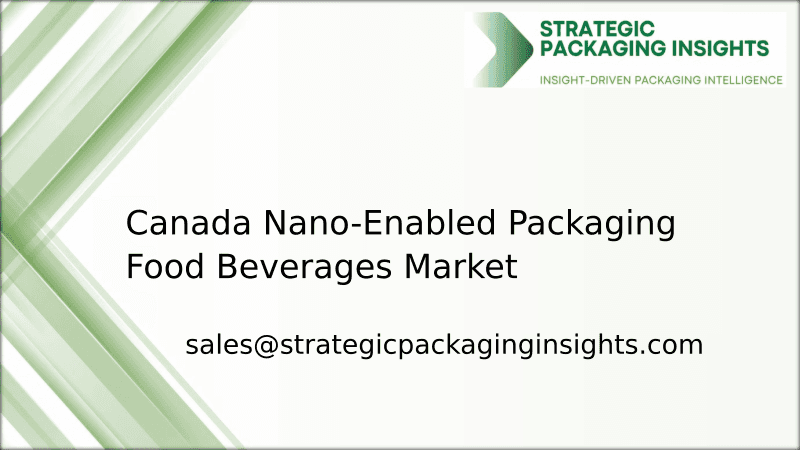
The Canada Nano-Enabled Packaging Food Beverages market was valued at $1.2 billion in 2024 and is projected to reach $3.5 billion by 2033, growing at a CAGR of 12.5% during the forecast period 2025–2033.
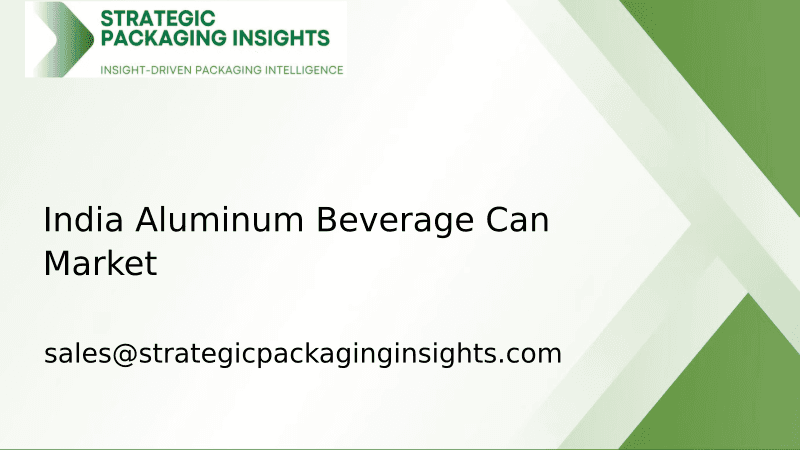
The India Aluminum Beverage Can market was valued at $1.2 billion in 2024 and is projected to reach $2.5 billion by 2033, growing at a CAGR of 8.5% during the forecast period 2025–2033.
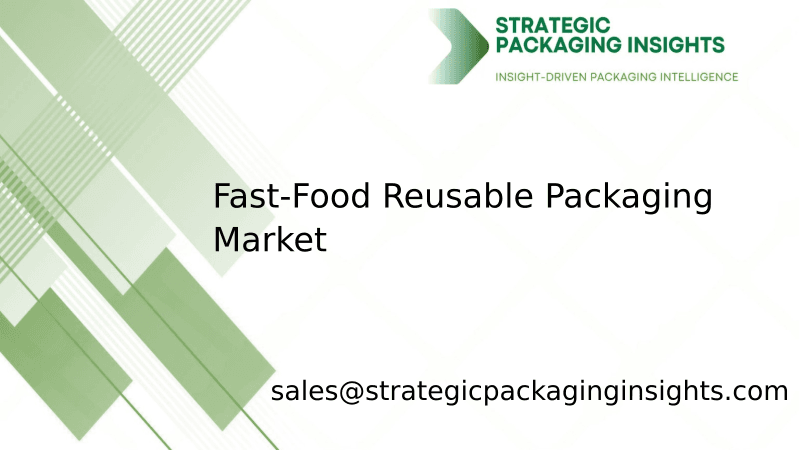
The fast-food reusable packaging market was valued at $1.2 billion in 2024 and is projected to reach $3.5 billion by 2033, growing at a CAGR of 12.5% during the forecast period 2025–2033.
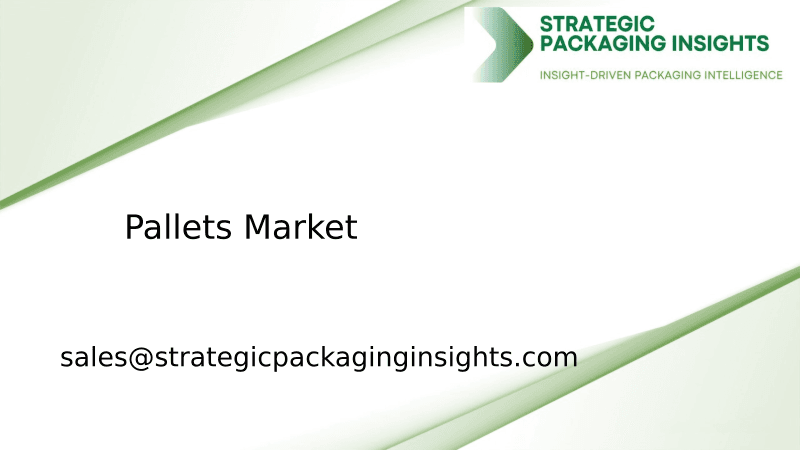
The pallets market was valued at $59.91 billion in 2024 and is projected to reach $88.69 billion by 2033, growing at a CAGR of 4.5% during the forecast period 2025–2033.

The lamination adhesives market was valued at $2.5 billion in 2024 and is projected to reach $4.1 billion by 2033, growing at a CAGR of 5.8% during the forecast period 2025–2033.

The garment packing machine market was valued at $1.2 billion in 2024 and is projected to reach $2.5 billion by 2033, growing at a CAGR of 8.5% during the forecast period 2025–2033.

The fiber drums market was valued at $1.2 billion in 2024 and is projected to reach $2.1 billion by 2033, growing at a CAGR of 6.5% during the forecast period 2025–2033.

The cosmetics and perfumery glass bottles market was valued at $1.5 billion in 2024 and is projected to reach $2.3 billion by 2033, growing at a CAGR of 4.8% during the forecast period 2025–2033.

The medical devices packaging market was valued at $25 billion in 2024 and is projected to reach $40 billion by 2033, growing at a CAGR of 5.5% during the forecast period 2025–2033.

The primary packaging labels market was valued at $35 billion in 2024 and is projected to reach $55 billion by 2033, growing at a CAGR of 5.2% during the forecast period 2025–2033.

The corrugated board packaging market was valued at $250 billion in 2024 and is projected to reach $380 billion by 2033, growing at a CAGR of 4.5% during the forecast period 2025–2033.

The Water Soluble Packaging Films market was valued at $2.8 billion in 2024 and is projected to reach $5.6 billion by 2033, growing at a CAGR of 8.1% during the forecast period 2025–2033.

The Aluminium Foil Packaging market was valued at $25 billion in 2024 and is projected to reach $40 billion by 2033, growing at a CAGR of 5.5% during the forecast period 2025–2033.

The self-heating food packaging market was valued at $4.5 billion in 2024 and is projected to reach $7.8 billion by 2033, growing at a CAGR of 6.2% during the forecast period 2025–2033.

The Smart Container market was valued at $2.5 billion in 2024 and is projected to reach $8.7 billion by 2033, growing at a CAGR of 14.5% during the forecast period 2025–2033.

The Automatic Labeling Machine market was valued at $2.5 billion in 2024 and is projected to reach $4.8 billion by 2033, growing at a CAGR of 7.2% during the forecast period 2025–2033.

The Hot Melt Glue Labeler market was valued at $1.2 billion in 2024 and is projected to reach $2.3 billion by 2033, growing at a CAGR of 6.5% during the forecast period 2025–2033.

The Ethical Label market was valued at $1.5 billion in 2024 and is projected to reach $3.2 billion by 2033, growing at a CAGR of 8.5% during the forecast period 2025–2033.

The Packaging Tensioner market was valued at $1.2 billion in 2024 and is projected to reach $2.3 billion by 2033, growing at a CAGR of 6.5% during the forecast period 2025–2033.

The foodservice packaging market was valued at $120 billion in 2024 and is projected to reach $180 billion by 2033, growing at a CAGR of 4.5% during the forecast period 2025–2033.

The nano-enabled packaging market was valued at $15.2 billion in 2024 and is projected to reach $35.6 billion by 2033, growing at a CAGR of 9.5% during the forecast period 2025–2033.

The Cold Seal Packaging market was valued at $1.5 billion in 2024 and is projected to reach $2.3 billion by 2033, growing at a CAGR of 4.8% during the forecast period 2025–2033.

The Transparent Barrier Packaging Films market was valued at $12.5 billion in 2024 and is projected to reach $20.3 billion by 2033, growing at a CAGR of 5.8% during the forecast period 2025–2033.

The Flatback Tape market was valued at $2.5 billion in 2024 and is projected to reach $4.1 billion by 2033, growing at a CAGR of 5.8% during the forecast period 2025–2033.

The packer bottle market was valued at $3.5 billion in 2024 and is projected to reach $5.8 billion by 2033, growing at a CAGR of 5.2% during the forecast period 2025–2033.

The Canada Nano-Enabled Packaging Food Beverages market was valued at $1.2 billion in 2024 and is projected to reach $3.5 billion by 2033, growing at a CAGR of 12.5% during the forecast period 2025–2033.

The India Aluminum Beverage Can market was valued at $1.2 billion in 2024 and is projected to reach $2.5 billion by 2033, growing at a CAGR of 8.5% during the forecast period 2025–2033.

The fast-food reusable packaging market was valued at $1.2 billion in 2024 and is projected to reach $3.5 billion by 2033, growing at a CAGR of 12.5% during the forecast period 2025–2033.

The pallets market was valued at $59.91 billion in 2024 and is projected to reach $88.69 billion by 2033, growing at a CAGR of 4.5% during the forecast period 2025–2033.

The lamination adhesives market was valued at $2.5 billion in 2024 and is projected to reach $4.1 billion by 2033, growing at a CAGR of 5.8% during the forecast period 2025–2033.

The garment packing machine market was valued at $1.2 billion in 2024 and is projected to reach $2.5 billion by 2033, growing at a CAGR of 8.5% during the forecast period 2025–2033.
